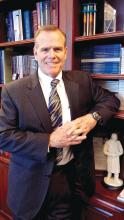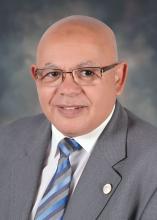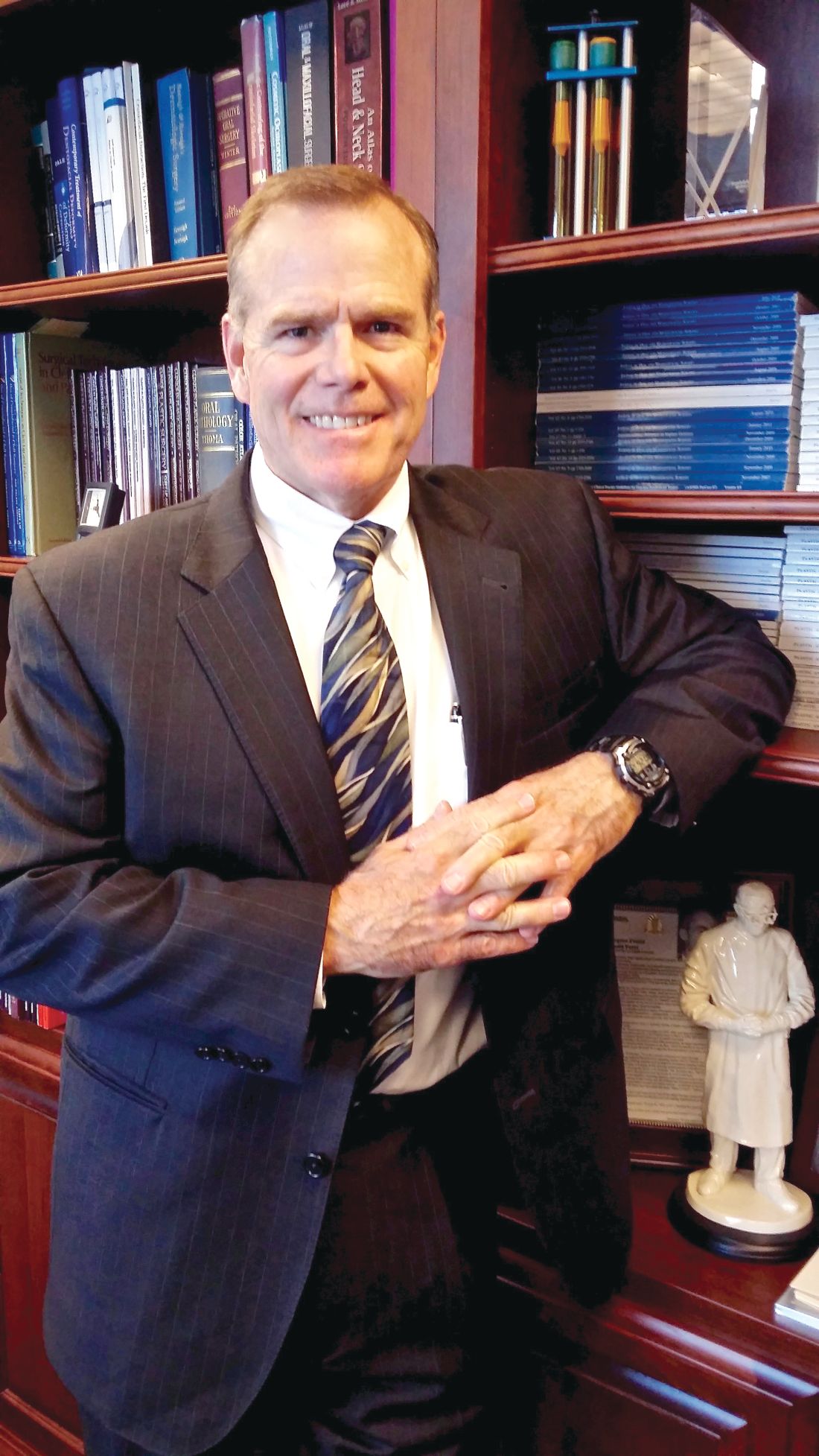User login
Insight into treatment of complex vascular malformations will be the focus of “Surgical Issues in Vascular Malformation Management” on Tuesday afternoon.
The session will cover surgical techniques and the issues that each of these techniques raise. In addition to presentatons, this year’s schedule will include a debate. “This program addition will draw attention to differences in treatment philosophy and patient management and should be very interesting,” said co-moderator Dr. Randolph C. Robinson, clinical professor at the University of Colorado, Denver.
Surgical resection has been the treatment of choice but has resulted in significant morbidity and recurrence. Endovascular therapy with super-selective catheters delivering different embolic agents and use of direct puncture technique has rapidly replaced surgery. “There has been an important evolution occurring in the treatment of vascular anomalies using advanced sclerosis techniques to neutralize the lesion. Once the sclerosis is completed, then the surgery to restore the normal contours and function is less invasive and deforming,” stated Dr. Robinson.
Those in attendance will learn about managing these complex vascular malformations from a reconstructive standpoint, and also how to coordinate with interventional radiologists for timing corrections. Many reconstructive procedures are staged operations and must, therefore, be sequenced.
“Vascular malformations are in anatomically and surgically difficult or inaccessible areas, which has led to increased reliance on interventional radiology to manage them,” said Dr. Radwan. “The surgical goal should be improvement of symptoms and quality of life beside the treatment of life-threatening complications rather than eradication of the lesion at the expense of surgical morbidity.”
“I also look forward to hearing the latest information from two physicians from our Denver team who have excellent experience treating very difficult and large life-threatening deformities,” Dr. Robinson continued. Dr. Edward Hepworth, founder of Colorado Center for Skull Base Craniofacial Disorders will discuss otolaryngology surgical and endoscopic issues. Dr. Tanya M. Oswald of the Swedish Medical Center will speak on plastic surgery reconstruction issues. Dr. Robinson will be giving a talk on surgical reconstruction and patient normalization post-endovascular sclerotherapy.
“We are going to have very interesting debates presented by four eminent speakers providing the pros and cons of whether endovascular management is the treatment of choice for managing vascular malformations without the need for open surgery,” added Dr. Radwan. Dr. Robinson and Dr. Hepworth will present the pro position. Dr. Kim and Dr. Oswald will present the con argument. There will also be time for rebuttal.
Attendees will leave the session with a new outlook on management of complex vascular malformations. “They will understand that treatment is not done in isolation but involves a team with specialization in regional management of these deformities before or after endovascular sclerotherapy,” said Dr. Robinson. Dr. Radwan explained that attendees will also learn that “…for patient safety and beneficial treatment outcome, vascular malformations are best treated when patients are seen on a regular basis by a dedicated experienced malformation team.”
Dr. Robinson also added, “I also think it is important to acknowledge Dr. Wayne Yakes, who developed and performed the first advanced techniques of ethanol endovascular ablation and has taught around the world to educate others in his techniques.” Dr. Radwan agreed, “Dr. Yakes played quite a role in helping to develop proper AVM management in Egypt. As one of the course directors, he will add a lot to the learning outcomes of the AVM sessions.”
Session 20:
Surgical Issues in Vascular Malformation Management
2:21 p.m. to 3:34 p.m.
Trianon Ballroom, 3rd Floor
Insight into treatment of complex vascular malformations will be the focus of “Surgical Issues in Vascular Malformation Management” on Tuesday afternoon.
The session will cover surgical techniques and the issues that each of these techniques raise. In addition to presentatons, this year’s schedule will include a debate. “This program addition will draw attention to differences in treatment philosophy and patient management and should be very interesting,” said co-moderator Dr. Randolph C. Robinson, clinical professor at the University of Colorado, Denver.
Surgical resection has been the treatment of choice but has resulted in significant morbidity and recurrence. Endovascular therapy with super-selective catheters delivering different embolic agents and use of direct puncture technique has rapidly replaced surgery. “There has been an important evolution occurring in the treatment of vascular anomalies using advanced sclerosis techniques to neutralize the lesion. Once the sclerosis is completed, then the surgery to restore the normal contours and function is less invasive and deforming,” stated Dr. Robinson.
Those in attendance will learn about managing these complex vascular malformations from a reconstructive standpoint, and also how to coordinate with interventional radiologists for timing corrections. Many reconstructive procedures are staged operations and must, therefore, be sequenced.
“Vascular malformations are in anatomically and surgically difficult or inaccessible areas, which has led to increased reliance on interventional radiology to manage them,” said Dr. Radwan. “The surgical goal should be improvement of symptoms and quality of life beside the treatment of life-threatening complications rather than eradication of the lesion at the expense of surgical morbidity.”
“I also look forward to hearing the latest information from two physicians from our Denver team who have excellent experience treating very difficult and large life-threatening deformities,” Dr. Robinson continued. Dr. Edward Hepworth, founder of Colorado Center for Skull Base Craniofacial Disorders will discuss otolaryngology surgical and endoscopic issues. Dr. Tanya M. Oswald of the Swedish Medical Center will speak on plastic surgery reconstruction issues. Dr. Robinson will be giving a talk on surgical reconstruction and patient normalization post-endovascular sclerotherapy.
“We are going to have very interesting debates presented by four eminent speakers providing the pros and cons of whether endovascular management is the treatment of choice for managing vascular malformations without the need for open surgery,” added Dr. Radwan. Dr. Robinson and Dr. Hepworth will present the pro position. Dr. Kim and Dr. Oswald will present the con argument. There will also be time for rebuttal.
Attendees will leave the session with a new outlook on management of complex vascular malformations. “They will understand that treatment is not done in isolation but involves a team with specialization in regional management of these deformities before or after endovascular sclerotherapy,” said Dr. Robinson. Dr. Radwan explained that attendees will also learn that “…for patient safety and beneficial treatment outcome, vascular malformations are best treated when patients are seen on a regular basis by a dedicated experienced malformation team.”
Dr. Robinson also added, “I also think it is important to acknowledge Dr. Wayne Yakes, who developed and performed the first advanced techniques of ethanol endovascular ablation and has taught around the world to educate others in his techniques.” Dr. Radwan agreed, “Dr. Yakes played quite a role in helping to develop proper AVM management in Egypt. As one of the course directors, he will add a lot to the learning outcomes of the AVM sessions.”
Session 20:
Surgical Issues in Vascular Malformation Management
2:21 p.m. to 3:34 p.m.
Trianon Ballroom, 3rd Floor
Insight into treatment of complex vascular malformations will be the focus of “Surgical Issues in Vascular Malformation Management” on Tuesday afternoon.
The session will cover surgical techniques and the issues that each of these techniques raise. In addition to presentatons, this year’s schedule will include a debate. “This program addition will draw attention to differences in treatment philosophy and patient management and should be very interesting,” said co-moderator Dr. Randolph C. Robinson, clinical professor at the University of Colorado, Denver.
Surgical resection has been the treatment of choice but has resulted in significant morbidity and recurrence. Endovascular therapy with super-selective catheters delivering different embolic agents and use of direct puncture technique has rapidly replaced surgery. “There has been an important evolution occurring in the treatment of vascular anomalies using advanced sclerosis techniques to neutralize the lesion. Once the sclerosis is completed, then the surgery to restore the normal contours and function is less invasive and deforming,” stated Dr. Robinson.
Those in attendance will learn about managing these complex vascular malformations from a reconstructive standpoint, and also how to coordinate with interventional radiologists for timing corrections. Many reconstructive procedures are staged operations and must, therefore, be sequenced.
“Vascular malformations are in anatomically and surgically difficult or inaccessible areas, which has led to increased reliance on interventional radiology to manage them,” said Dr. Radwan. “The surgical goal should be improvement of symptoms and quality of life beside the treatment of life-threatening complications rather than eradication of the lesion at the expense of surgical morbidity.”
“I also look forward to hearing the latest information from two physicians from our Denver team who have excellent experience treating very difficult and large life-threatening deformities,” Dr. Robinson continued. Dr. Edward Hepworth, founder of Colorado Center for Skull Base Craniofacial Disorders will discuss otolaryngology surgical and endoscopic issues. Dr. Tanya M. Oswald of the Swedish Medical Center will speak on plastic surgery reconstruction issues. Dr. Robinson will be giving a talk on surgical reconstruction and patient normalization post-endovascular sclerotherapy.
“We are going to have very interesting debates presented by four eminent speakers providing the pros and cons of whether endovascular management is the treatment of choice for managing vascular malformations without the need for open surgery,” added Dr. Radwan. Dr. Robinson and Dr. Hepworth will present the pro position. Dr. Kim and Dr. Oswald will present the con argument. There will also be time for rebuttal.
Attendees will leave the session with a new outlook on management of complex vascular malformations. “They will understand that treatment is not done in isolation but involves a team with specialization in regional management of these deformities before or after endovascular sclerotherapy,” said Dr. Robinson. Dr. Radwan explained that attendees will also learn that “…for patient safety and beneficial treatment outcome, vascular malformations are best treated when patients are seen on a regular basis by a dedicated experienced malformation team.”
Dr. Robinson also added, “I also think it is important to acknowledge Dr. Wayne Yakes, who developed and performed the first advanced techniques of ethanol endovascular ablation and has taught around the world to educate others in his techniques.” Dr. Radwan agreed, “Dr. Yakes played quite a role in helping to develop proper AVM management in Egypt. As one of the course directors, he will add a lot to the learning outcomes of the AVM sessions.”
Session 20:
Surgical Issues in Vascular Malformation Management
2:21 p.m. to 3:34 p.m.
Trianon Ballroom, 3rd Floor


